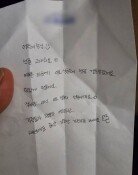‘There is no crying in baseball’
‘There is no crying in baseball’
Posted April. 11, 2020 07:54,
Updated April. 11, 2020 07:54

The calamity of World War II could not stop major league baseball (MLB) from keep playing, and then-President Franklin Roosevelt was behind the decision. There were strong calls to suspend MLB after the attack on Pearl Harbor by the Imperial Japanese Navy Air Service. Back in January 1942, MLB Commissioner Kenesaw Landis wrote a letter to President Roosevelt and asked if MLB should continue. The president wrote him back the next day. "I honestly feel that it would be best for the country to keep baseball going," wrote Roosevelt. "There will be fewer people unemployed and everybody will work longer hours and harder than ever before. And that means that they ought to have a chance for recreation and for taking their minds off their work even more than before." This is part of the famous “green light letter.” Taking the president’s advice, Landis increased the number of night games so that workers can see more games after work. Landis, who was a die-hard Republican, detested the Democratic Party as well as President Roosevelt. But political ideology did not matter at all when it came to baseball. Baseball grew into a national sport because it served as a vitamin for people during the war.
What would Roosevelt have said if he had been alive today and received that letter? A fear of virus is completely different from that of war. Nobody knows when the virus will subside. We cannot just say, “playball” without guaranteeing the health of players and the audience unless it is robots who play baseball. Professional baseball players here in South Korea are also waiting for the season to start, which has been delayed indefinitely. But team scrimmages, which are being aired live, are drawing as much popularity as regular games. Teams are also actively communicating with fans through social media. There should not be limitations to teams’ efforts to communicate with fans.
Almost half of the 50 billion won yearly budget of a professional baseball team comes from a sponsor company. If the coronavirus-induced economic downturn takes a toll on those companies, teams might be forced to shut down. They are in need of temporary support, such as reductions in stadium fees or tax deductions on ticket purchases after the season begins. Similar benefits are already provided to book purchases or ticket purchases for cultural performances. There are growing calls for baseball players to share the pain by making donations. Co-prosperity is important.
In the movie, “A League of Their Own,” Tom Hanks famously said, “There’s no crying in baseball” to a player who was crying after making a mistake during a game. It means crying would not solve a problem so it would be better to do something instead, such as training. Tom Hanks used the saying in March this year when announcing that he had tested positive for the coronavirus. “There are things we can all do to get through this by following the advice of experts and taking care of ourselves and each other. Remember, despite all the current events, there is no crying in baseball,” said Hanks. Even if there is no crying in baseball, hopefully baseball will help us dry our tears soon.
Jong-Seok Kim kjs0123@donga.com







